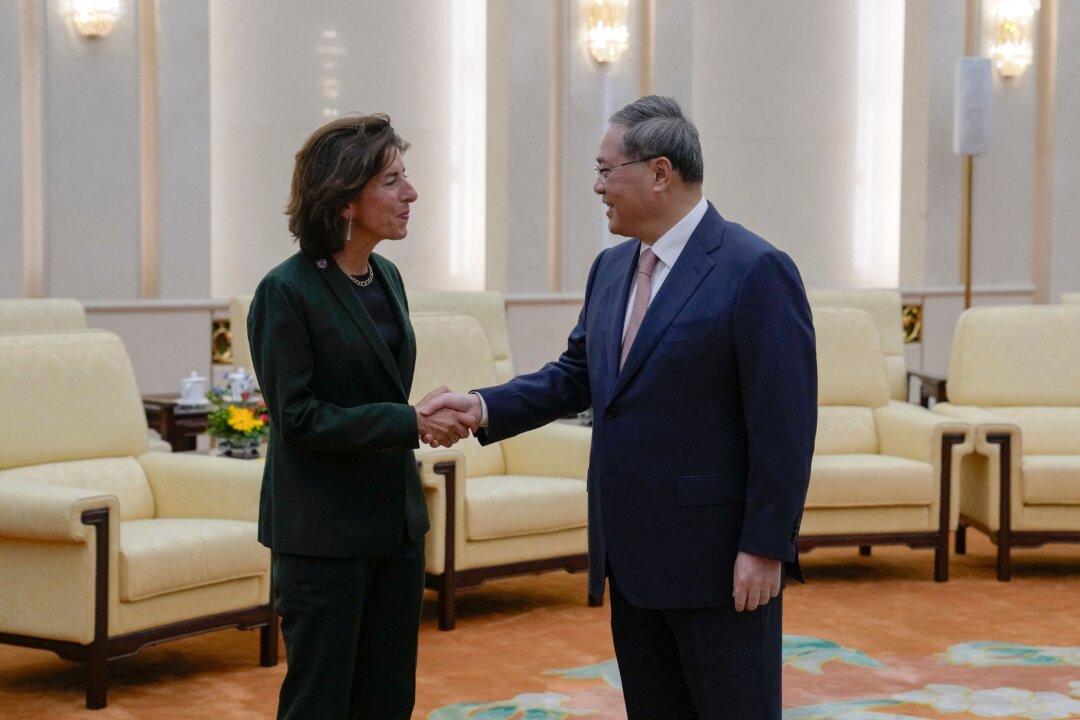The United States will not compromise on national security, but it doesn’t seek to decouple from Beijing, U.S. Commerce Secretary Gina Raimondo told senior Chinese officials on Tuesday.
Ms. Raimondo is on the second day of talks in China as part of the Biden administration’s efforts to reopen communication lines with the communist regime. The bilateral ties between Beijing and Washington have deteriorated this year over a slew of issues, from trade, tariffs, and Taiwan to alleged spies. The most recent episodes include the breach of U.S. government emails by China-linked hackers.




